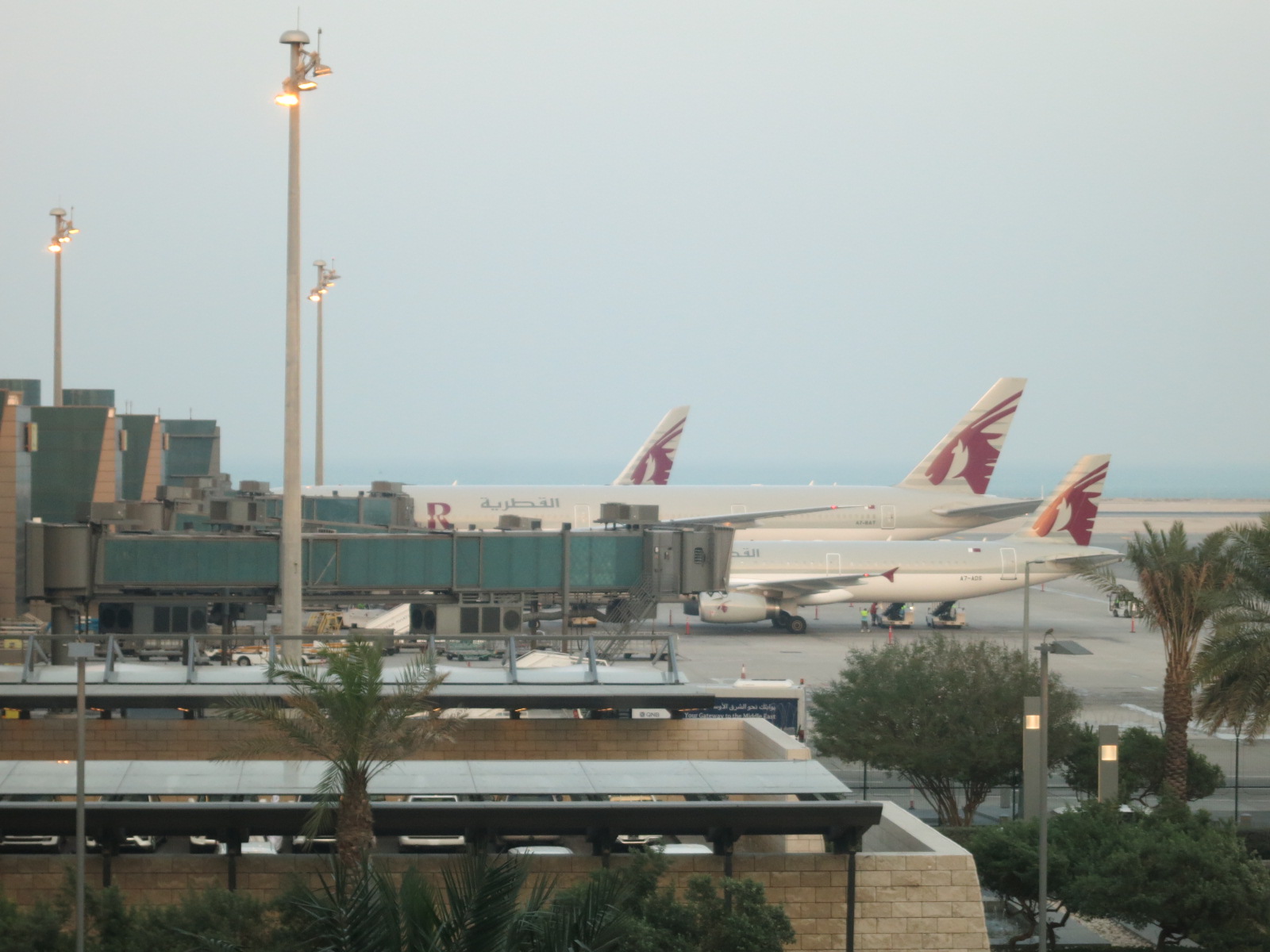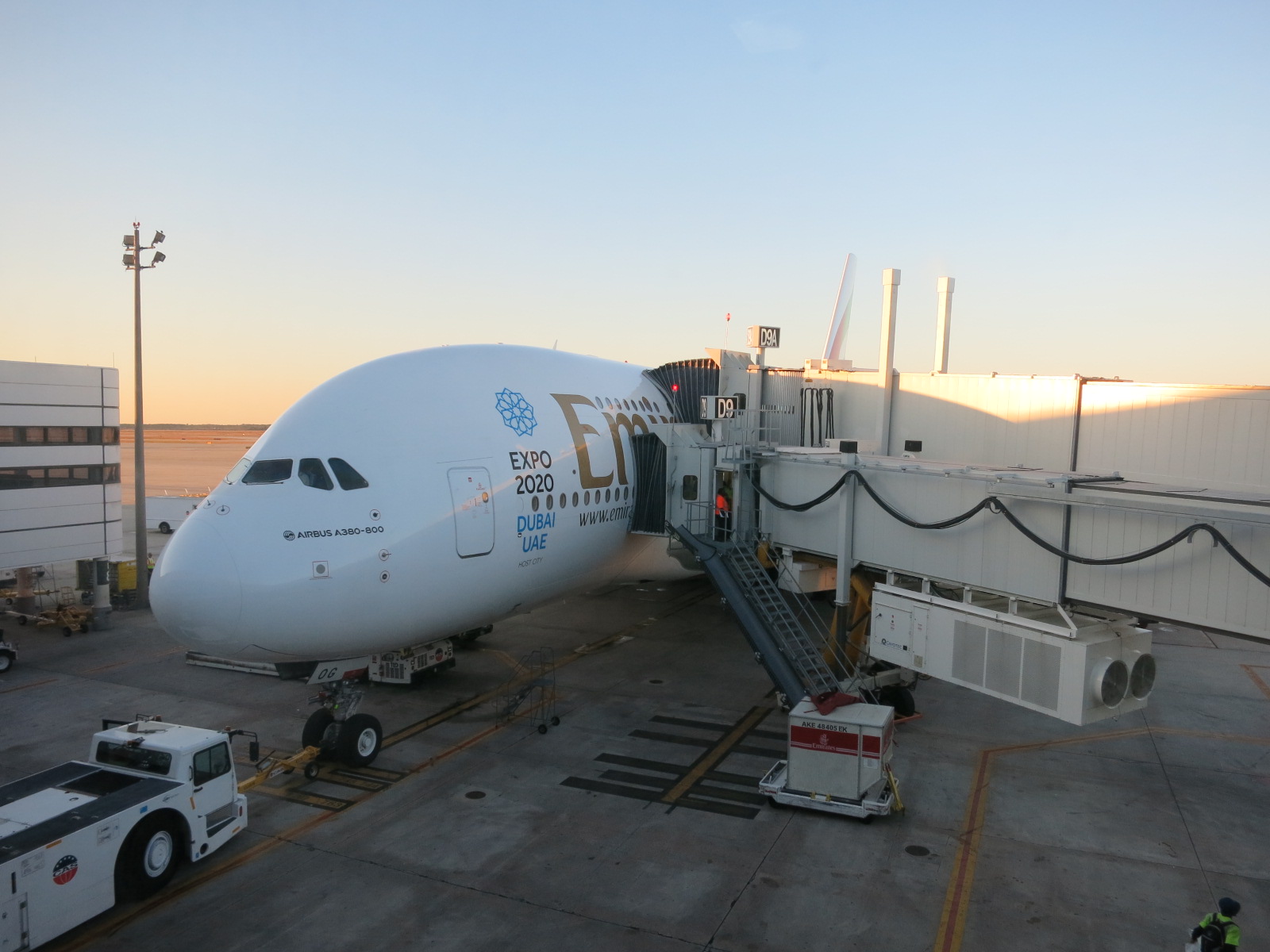Qatar needs the help of the US to end the blockage of the country led by Saudi Arabia and the UAE. So they’re throwing money at the U.S. such as through the purchase of billions of dollars of military equipment from Boeing and entering into agreements which ostensibly help the U.S. fight terrorism and cyber crimes.
They’re settling the ongoing dispute with Delta, American and United over Open Skies.

The US airlines claim Qatar Airways is subsidized (it is, so are the US airlines, and these subsidies don’t violate international agreements). They’ve been lobbying the US government to limit the flight choices of consumers and raise prices.
Initially it was reported that Qatar:
- Would increase financial transparency. They’ll make audited financials public in a year and starting in two years disclose transactions with other state-owned entities.
- Agree not to fly between Europe and the U.S. Of course Qatar originally began service to the U.S. via Geneva before they were in a position to operation non-stop flights, but they do not today offer flights between the U.S. and Europe.
There was no limitation on flights from Doha to the U.S. And it turns out that the actual agreement contains only a side letter indicating that Qatar’s civilian aviation authority is “unaware of any plans by Qatar Airlines to start” flights between third countries and the U.S. There is no promise about avoiding such flights in the future.
Moreover Qatar Airways’ strategy is buying into other airlines which operate those flights, not operating such flights themselves. They are the largest shareholder in IAG which owns British Airways, Iberia, and Aer Lingus. And they’re the largest shareholder in Italian carrier Meridiana which is launching new U.S. service this year.
Still, the deal allows the U.S. airlines to claim victory and avoid embarrassment although in reality after three years of lobbying they walk away with more or less nothing from the airline that’s the most subsidized of their three targets.
American, the world’s biggest airline by passenger traffic, praised the deal as a way to “thoughtfully address” Qatari subsidies. And United CEO Oscar Munoz applauded the agreement while thanking Trump’s administration for “effectively representing the interests of the American aviation industry.”

Of the three airlines that Delta, American, and United have lobbied for government protection from Emirates is the only one actually flying fifth freedom routes to the U.S. Entering an agreement like this not only settles a diplomatic issue for Qatar, it puts pressure on the UAE to do the same and mirroring the agreement would entail actual costs to Emirates.
This is a purely geopolitical move, and a smart one for Qatar, because it helps undermines UAE commercial interests — hopefully from the perspective of the Al Thanis encouraging the Al Maktoums and Al Nahyans to reduce pressure on Qatar rather than giving up commercial flights to the U.S.


DL may want to sell it as “hallowed” but you probably meant “Hollow Victory” 🙂
Interesting to see how this turned out.
Apart from the hallow typo as noted by Ryan, this is really good analysis. I expect much of the media to get this reporting wrong, but it definitely sounds like another front in the proxy war that’s going on between Doha and its neighbors and needs to be viewed in that context.